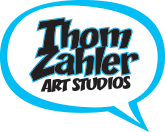When I was a boy of fourteen, my father was so ignorant I could hardly stand to have the old man around. But when I got to be twenty-one, I was astonished at how much he had learned in seven years. --Mark Twain (possibly apocryphal)
When I was a kid reading comics, I didn’t like Joe Kubert’s work. He was maybe the second or third artist I learned to identify. (The first was the late Kurt Schaffenberger, because he drew the Superman’s S-Shield so distinctively.) His stuff looked sketchy, the characters seemed a little rubbery.
But he created the Kubert School, the place to go if you wanted to be a cartoonist, and I did, so that’s where I went. And by the time I graduated, I was amazed at how much better he’d gotten. Joe taught my third year sequential art class. I’m going to try to dig some of those assignments out and show them this week. Here’s one. But honestly, drawing is the least of what I learned from Joe.
Joe’s school had a philosophy. He said that he wanted his students to be able to go into a one-horse town and get whatever art job was available there. It flew in the face of what I was hearing from comic book editors, who wanted you to concentrate on one discipline, to specialize. Joe let you concentrate on your strengths, but you still had to do everything.
So sure, I can draw. And I can ink. But I can color. I can letter (my first pro work). I can design. I can airbrush. I can do paste ups and cut amberlith and make dummy books. Yeah, some of that last stuff has phased out with the computer becoming a bigger tool, but being able to think in CMYK separations is still a great skill to have. I know what steps the computer is doing for me.
And now, when I do my Love and Capes, I don’t have to hire someone to letter it or color it or lay it out. I can do all that. It’s given me flexibility that I know I didn’t appreciate back then.
Joe also beat deadlines and hard work into you. He told me at my interview that a lot of people who come to the school want to get a part-time job but can’t because the workload was so fierce. I somehow managed to make one work my second year, but it wasn’t an insignificant amount of work. Ten classes a week, every week. By the time I came home for Thanksgiving during my first year, I had already done one hundred assignments.
People ask me how I get so much work done. It’s because Joe didn’t teach me any other way.
After graduating, I really appreciated him as a businessman. He started a school. He owned his own characters and created graphic novels. He’d worked as an editor at DC and still worked on their characters. There weren’t a lot of artists from his time who did as well as he did, and it wasn’t because he had One Great Idea that became a gravy train, it’s because he worked at it so well. He was smart that way, and I think that’s something we all can learn from him.
And, he worked forever. He was still doing solid work this year. He may have slowed down, but he never stopped. I don’t think he could have retired if he had wanted to, and you could tell he loved what he did. That’s a road I hope to be on myself. I didn’t know Joe well. And there’s a natural tendency after school to rail against your teachers and your school, because what you learned doesn’t give you the results you want in the time you want them. But when do you get those results, you realize you couldn’t have gotten there any other way. All of this is by way of saying, I hadn’t really seen or spoken to him since school, and I may not have always been kind in describing my time at the school.
But a couple years ago at the Baltimore Comic-Con, he was a guest and walked by my table. I stopped him and said hello, and reminded him that I was one of his students. (He had so many, there’s no way he would have remembered just me.) He looked at me, and with a focused and concerned look, he asked me if I was still doing art.
“Every day, sir. I’ve only had art jobs since I graduated, and I’ve been completely freelance for the last ten years.”
He lit up and smiled that big Joe Kubert smile. I felt a wave of pride I wouldn’t have expected, and all that silly stuff like the cold classrooms and the tuition price and Joe’s conception of optimum walking distance describing how far the dorm was from the school faded away. There was just a teacher proud of his student, and a student proud that he had used the tools his teacher had given him.
Joe is probably the most influential person on my career not counting my family. From his drawing articles in Dynamite Magazine to his school and his education… I don’t know where I’d be without any of those. And I’m glad I don’t have to find out.
Oh, and he could draw pretty well, too.
